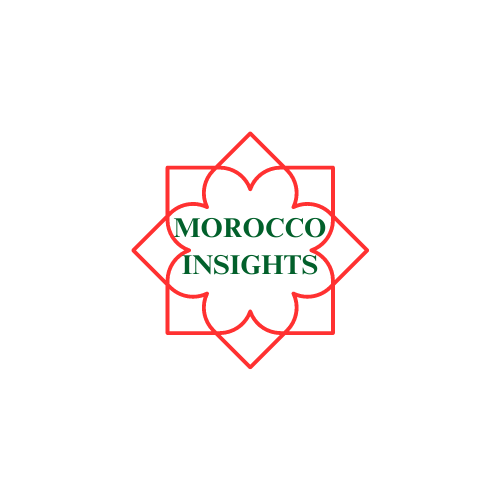In this article, you will explore the historical significance of Moroccan kings in shaping the rich culture of the country. From their influence on religious practices to their impact on architecture and arts, Moroccan kings have left an indelible mark on the cultural fabric of the nation. By delving into their rule and the various aspects they fostered, you will gain a deeper understanding of the pivotal role played by Moroccan kings in shaping the vibrant and diverse culture that thrives in Morocco today.
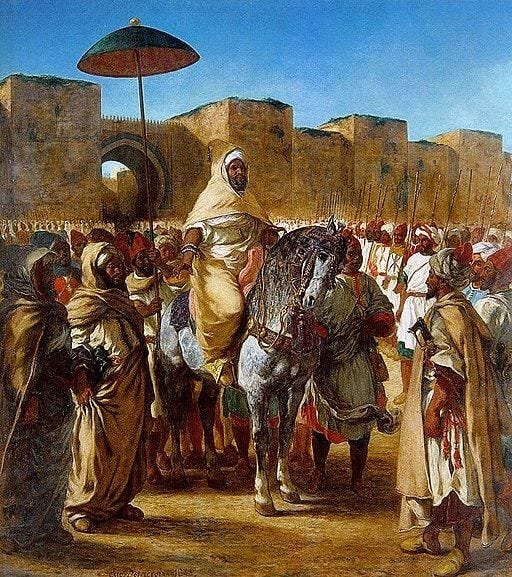
This image is property of miro.medium.com.
Ancient Origins
Berber Influence
The history of Morocco dates back thousands of years, and one of the earliest influences on its culture comes from the indigenous Berber people. The Berbers inhabited the region long before the arrival of other civilizations and their culture has had a lasting impact on the country. From their unique language, Tamazight, to their traditional customs, art, and music, the Berber influence can still be felt in modern-day Morocco.
Phoenician and Roman Influences
The Phoenicians and Romans are two of the most significant civilizations that shaped Morocco’s ancient origins. The Phoenicians established trading posts along the coast, introducing new goods and ideas to the indigenous Berber population. The Romans, on the other hand, conquered the region and left behind a rich architectural and cultural heritage. The Roman cities of Volubilis and Lixus, with their impressive ruins, stand as a testament to their influence on Morocco’s cultural landscape.
Islamization
Umayyad Dynasty
Morocco’s Islamization was a turning point in its history and played a pivotal role in shaping its culture. The Umayyad Dynasty, during the 8th century, introduced Islam to Morocco, and it quickly spread throughout the country. With the conversion to Islam came a new language, Arabic, which would go on to become the dominant language in the region. The Umayyad Dynasty also left behind architectural marvels, including the famous Great Mosque of Tlemcen.
Idrisid Dynasty
The Idrisid Dynasty emerged as a result of Islam’s growing influence in Morocco. Founded by Idris I, this dynasty established the city of Fes as its capital and played a significant role in spreading Islamic education and scholarship. Under the Idrisid rule, mosques, madrasas, and libraries were built, creating centers of knowledge and attracting scholars from across the Muslim world. The Idrisid Dynasty laid the foundation for Morocco’s religious and intellectual heritage.
Almoravid Dynasty
The Almoravid Dynasty further strengthened Morocco’s Islamic identity. Led by the charismatic leader Yusuf ibn Tashfin, the Almoravids expanded their empire across North Africa and established Marrakesh as their capital. They promoted a puritanical interpretation of Islam and built magnificent architectural structures, such as the Koutoubia Mosque, which still stands as an iconic symbol of Moroccan architecture. The Almoravids left a lasting impact on Morocco’s religious and cultural identity.
Almohad Dynasty
The Almohad Dynasty succeeded the Almoravids and left an indelible mark on Morocco’s culture. Founded by the spiritual leader Ibn Tumart, the Almohads ruled over a vast empire that stretched from Spain to Tunisia. They implemented strict religious laws and built numerous architectural wonders, including the iconic Hassan Tower in Rabat. The Almohads’ contributions to Moroccan culture can be seen not only in their architectural achievements but also in the arts, literature, and religious practices of the time.
Merinid Dynasty
The Merinid Dynasty was another significant period in Morocco’s history. The Merinids established Fes as their capital and transformed it into a thriving cultural and intellectual center. They patronized the arts, promoted education, and erected impressive structures, such as the Attarine Madrasa. The Merinids also fostered trade and cultural exchange, opening Morocco to influences from other civilizations, including Andalusian and Jewish communities. Their reign marked a period of cultural flourishing in Morocco.
Saadian Dynasty
Ahmad al-Mansur: The Golden Age
The Saadian Dynasty, which emerged in the 16th century, witnessed a golden age under the rule of Ahmad al-Mansur. Known as the “Golden Sultan,” al-Mansur ushered in a period of prosperity, architectural splendor, and cultural achievement. He initiated grand building projects, including the famous El Badi Palace in Marrakesh, which showcased the wealth and opulence of his reign. Ahmad al-Mansur’s patronage of the arts and literature further contributed to the flourishing of Moroccan culture during his reign.
Trade and Exploration
The Saadian Dynasty also played a crucial role in promoting trade and exploration. Ahmad al-Mansur initiated a series of trading expeditions to West Africa and established diplomatic ties with European powers. These efforts led to increased economic prosperity and cultural exchange, further enriching Morocco’s cultural fabric. Moroccan goods, such as ceramics, textiles, and spices, found their way into European markets, while Morocco became a melting pot of influences from various corners of the world.
Socio-Cultural Contributions
Under the Saadian Dynasty, Morocco experienced significant socio-cultural contributions. The dynasty embraced religious tolerance, fostering a harmonious coexistence between Muslims, Jews, and Christians. The Jewish community thrived during this period, with flourishing Jewish quarters in cities like Fes and Marrakesh. The Saadian Dynasty’s commitment to inclusivity and diversity contributed to the multicultural character of Moroccan society.
Alaouite Dynasty
Establishment of the Dynasty
The Alaouite Dynasty, which still rules Morocco today, was established in the 17th century. Under the leadership of Moulay Ismail, the dynasty expanded its territories and strengthened its control over the country. Moulay Ismail’s reign was marked by a centralized government and military reforms, which helped establish stability and paved the way for the modernization of Morocco.
Foreign Relations and Diplomacy
The Alaouite Dynasty engaged in extensive foreign relations and diplomacy, establishing diplomatic ties with major European powers. Morocco became a key player in the geopolitics of the time, negotiating treaties and alliances to protect its interests. The dynasty’s diplomatic efforts not only secured Morocco’s independence but also influenced its cultural exchange with other nations.
Modernization and Reforms
The Alaouite Dynasty initiated significant modernization and reforms in Morocco. Sultan Mohammed III introduced administrative changes and implemented new laws to centralize power and promote economic development. Sultan Mohammed V continued these reforms, focusing on education, infrastructure, and economic diversification. The modernization efforts of the Alaouite Dynasty laid the foundations for Morocco’s progress in the 20th and 21st centuries.
Education and Women’s Rights
One of the noteworthy contributions of the Alaouite Dynasty is its emphasis on education and women’s rights. Sultan Mohammed V established the modern education system in Morocco, promoting access to education for both boys and girls. The dynasty also played a role in advancing women’s rights, encouraging women’s education and promoting their participation in public life. The Alaouite Dynasty’s commitment to education and gender equality has had a lasting impact on Morocco’s cultural and social landscape.
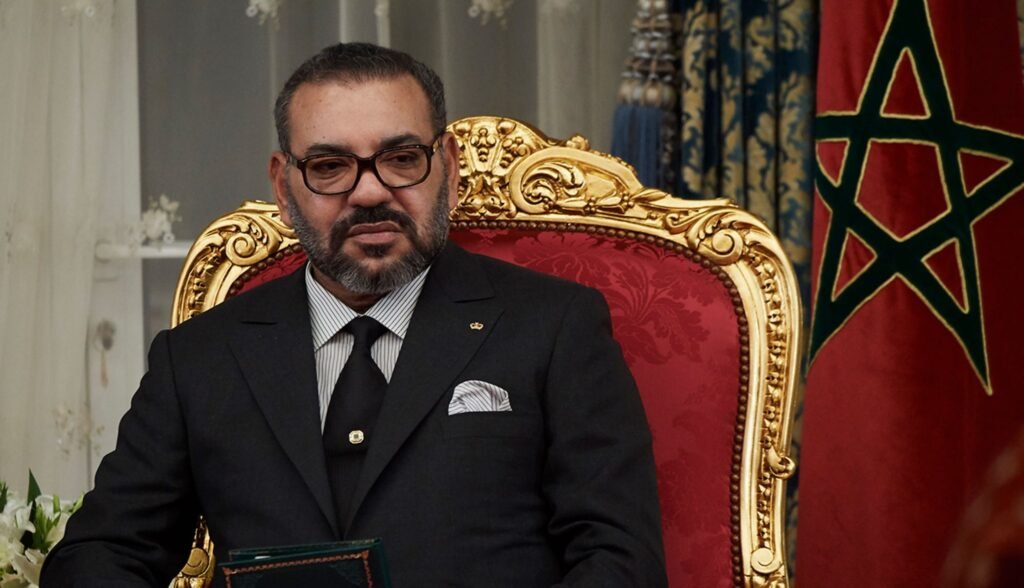
This image is property of facts.net.
Mohammed V and Moroccan Independence
Resistance against French Colonialism
During the era of European colonialism, Morocco faced French colonization, but it was met with strong resistance. Sultan Mohammed V, the leader of the independence movement, played a pivotal role in rallying the Moroccan people against French rule. Through speeches and acts of defiance, he became a symbol of resistance and unity. The resistance against French colonialism became a pivotal moment in Moroccan history, shaping the country’s struggle for independence.
Role in Moroccan Independence
Sultan Mohammed V’s leadership and diplomatic efforts ultimately led to Morocco’s independence. In 1956, Morocco regained its sovereignty, and Mohammed V became the country’s first king. His dedication to the cause of independence and his ability to unite various factions within the country laid the foundation for modern Morocco.
Promoting Moroccan Identity and Unity
King Mohammed V was deeply committed to promoting Moroccan identity and unity. He encouraged the preservation of Moroccan culture, languages, and traditions. Through his policies, he sought to unify the diverse ethnic and religious communities under a shared Moroccan identity. King Mohammed V’s leadership played a crucial role in shaping the cultural and national identity of modern Morocco.
King Hassan II
Stabilization and Modernization Efforts
King Hassan II ascended to the throne in 1961, and his reign was marked by efforts to stabilize and modernize Morocco. He introduced political reforms and implemented economic policies to promote development and alleviate poverty. King Hassan II’s leadership brought stability to the country and laid the groundwork for further progress.
Economic Reforms
Under King Hassan II’s rule, Morocco adopted economic reforms that aimed to diversify the economy and attract foreign investment. The country witnessed significant industrial development, especially in sectors such as agriculture, tourism, and manufacturing. King Hassan II’s economic policies contributed to the modernization of the country and played a significant role in shaping its cultural and social landscape.
Prestigious Infrastructure Projects
King Hassan II initiated several prestigious infrastructure projects that showcased Morocco’s ambition and progress. The most notable project is undoubtedly the Hassan II Mosque in Casablanca, one of the largest mosques in the world. This architectural marvel became a symbol of Morocco’s cultural heritage and religious significance. King Hassan II’s infrastructure projects transformed the country’s skyline and added to its rich architectural heritage.
Human Rights Concerns
While King Hassan II made significant contributions to Morocco’s development, his reign was also marred by human rights concerns. The country experienced turbulent periods marked by political repression and human rights abuses. However, in later years, steps were taken towards reconciliation and justice, leading to the establishment of the Equity and Reconciliation Commission to address past human rights violations.
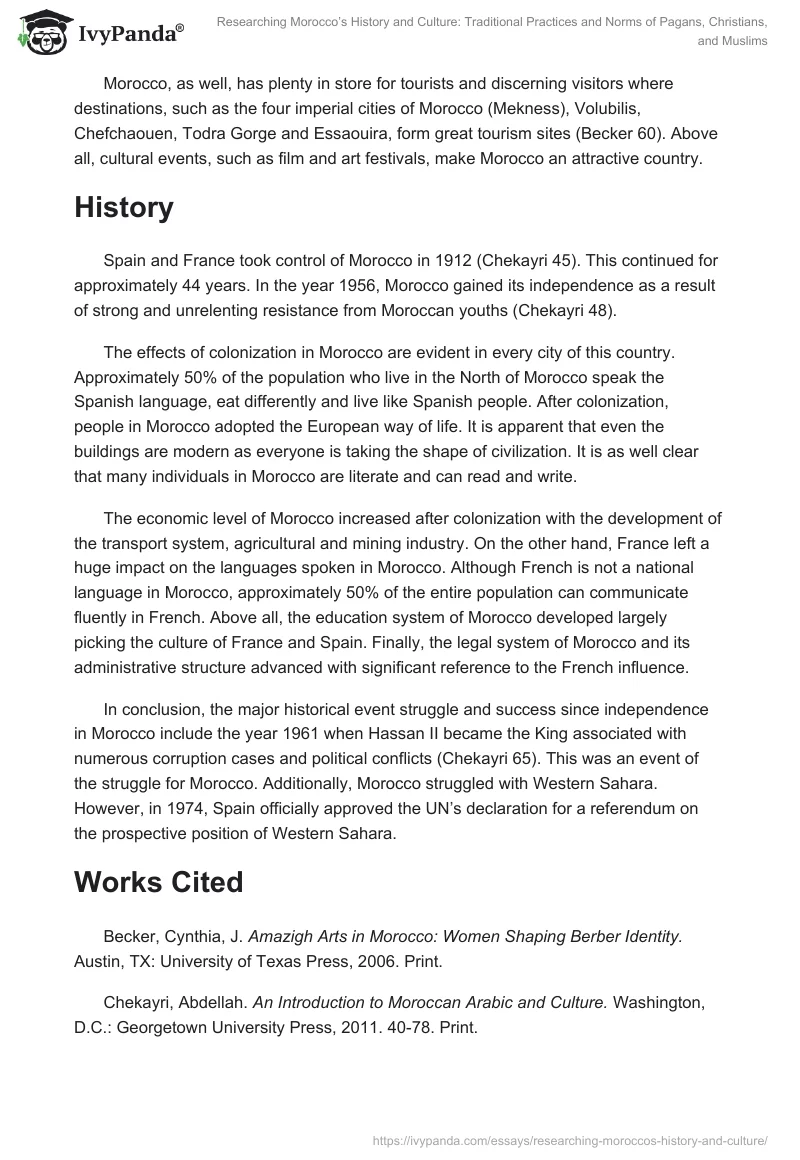
This image is property of ivypanda.com.
Mohammed VI and the 21st Century
Accession to the Throne
In 1999, King Mohammed VI took the throne, heralding a new era for Morocco. His reign has been characterized by a focus on political reforms, socio-economic development, and the promotion of human rights. King Mohammed VI’s approach to governance has aimed to modernize Morocco while preserving its cultural heritage.
Political Reforms
King Mohammed VI introduced significant political reforms aimed at strengthening democracy and promoting citizen participation. He implemented amendments to the constitution that enhanced the powers of elected institutions and created opportunities for political pluralism. These reforms have paved the way for a more open and inclusive political landscape in Morocco.
Social and Economic Development
Morocco has witnessed impressive social and economic development under King Mohammed VI’s leadership. The country has experienced steady economic growth, attracting foreign investment and increasing employment opportunities. Social programs have been implemented to address poverty and inequality, improving the living conditions of many Moroccans.
Promotion of Human Rights
King Mohammed VI has been committed to promoting human rights and achieving social justice in Morocco. Reforms have been initiated to strengthen the independence of the judiciary and ensure the protection of human rights. The establishment of truth and reconciliation mechanisms, such as the Equity and Reconciliation Commission, has played a crucial role in addressing past human rights abuses and fostering national unity.
Preserving Moroccan Culture and Heritage
King Mohammed VI has placed great emphasis on the preservation and promotion of Moroccan culture and heritage. Efforts have been made to safeguard and revitalize traditional arts and crafts, ensuring their transmission to future generations. Tourism has also been encouraged, showcasing Morocco’s rich cultural heritage to the world. The king’s commitment to preserving Morocco’s culture has enhanced the country’s global reputation.
Promotion and Preservation of Heritage
Revitalizing Traditional Arts and Crafts
Recognizing the importance of traditional arts and crafts in Moroccan culture, efforts have been made to revitalize and promote these traditions. Artisans are supported through training programs and initiatives to preserve and promote their crafts. Traditional festivals and exhibitions are organized to showcase the richness of Moroccan craftsmanship, ensuring the survival of these traditions for years to come.
Protection of Historical Sites
Morocco is home to numerous historical sites, including ancient ruins, fortresses, and architectural wonders. Efforts have been made to protect and preserve these sites for future generations. The Ministry of Culture works closely with local communities and international organizations to ensure the conservation and restoration of Morocco’s historical heritage. Through these initiatives, Morocco’s rich history continues to be celebrated and appreciated.
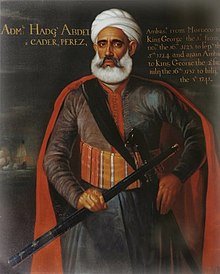
This image is property of upload.wikimedia.org.
Religious Patronage
Supporting Islamic Institutions
Morocco has a long history of supporting Islamic institutions, fostering religious education and scholarship. The monarchy has played a vital role in providing patronage to religious institutions, enabling the training of imams and the dissemination of Islamic knowledge. This support has contributed to the preservation and promotion of Islamic values and teachings in Moroccan society.
Promotion of Religious Tolerance
Morocco has a tradition of religious tolerance, fostering peaceful coexistence between different religious communities. The monarchy has played a crucial role in promoting interfaith dialogue and understanding. Initiatives such as the “Mohammed VI Foundation for the Promotion of Jewish-Moroccan Culture” have aimed to strengthen the bonds between Muslims and Jewish communities, further promoting religious tolerance and harmony.
Cultural Diplomacy
Promoting Moroccan Culture Internationally
Morocco actively engages in cultural diplomacy, promoting its rich cultural heritage internationally. Through cultural exchange programs, exhibitions, and festivals, Morocco showcases its traditional arts, music, cuisine, and literature to the world. The country’s unique cultural offerings have captivated audiences globally, enhancing its cultural influence and fostering cross-cultural understanding.
Hosting International Events
Morocco has long been a destination for hosting international events that celebrate various cultural forms. The country has welcomed film festivals, music festivals, and sporting events, providing a platform for artists, athletes, and cultural enthusiasts from around the world to come together. Hosting these events not only strengthens Morocco’s cultural ties but also encourages artistic exchange and collaboration on a global scale.
In conclusion, Moroccan kings have played a pivotal role in shaping the country’s culture throughout history. From ancient origins influenced by Berbers, Phoenicians, and Romans, to the Islamization of the region under different dynasties, each era has added its distinct contribution. The Saadian Dynasty brought a golden age of prosperity, exploration, and cultural flourishing, while the Alaouite Dynasty ushered in modernization and reforms. The leadership of Mohammed V and King Hassan II saw the struggles for independence and stability, respectively. Mohammed VI’s reign has focused on political reforms, social and economic development, human rights promotion, and the preservation of Morocco’s cultural heritage. Through their vision, policies, and support of various cultural aspects, Moroccan kings have left an indelible mark on the country’s cultural identity and continue to shape its future.
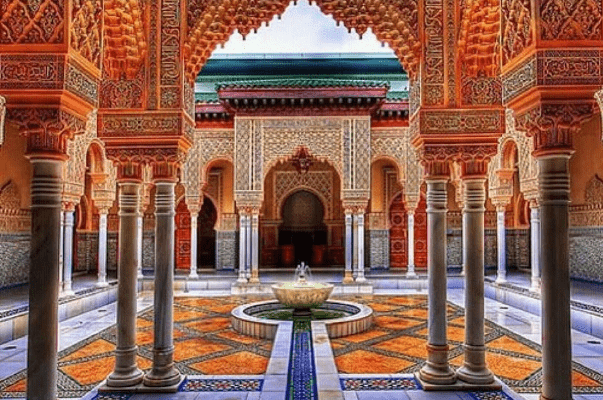
This image is property of www.moroccoworldnews.com.
